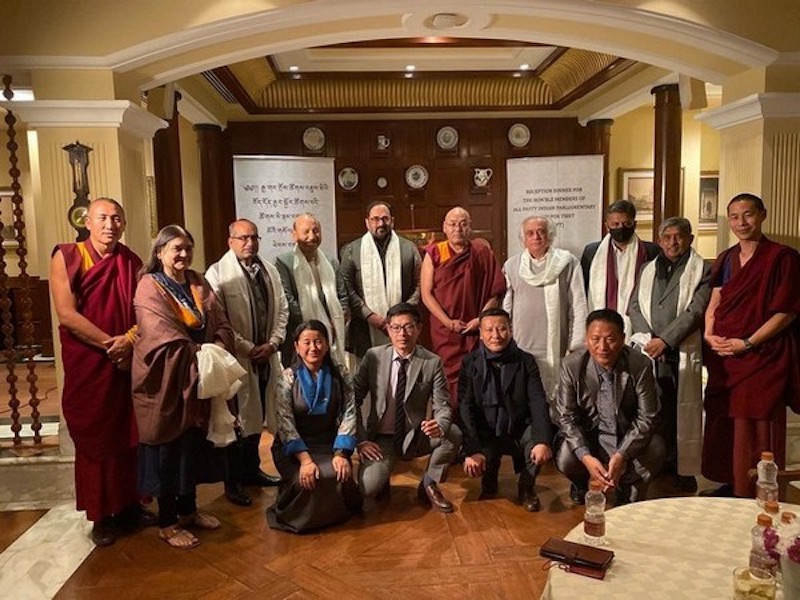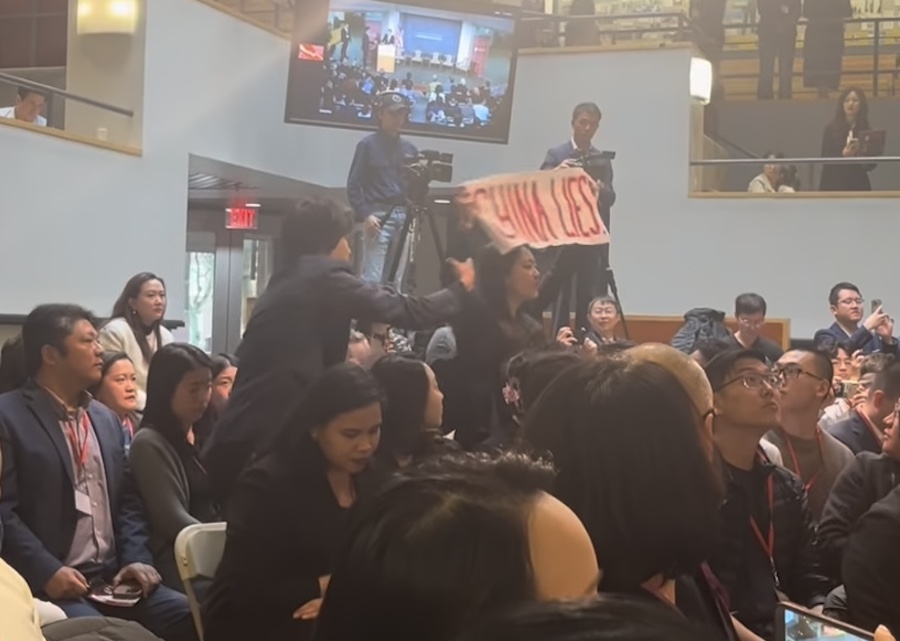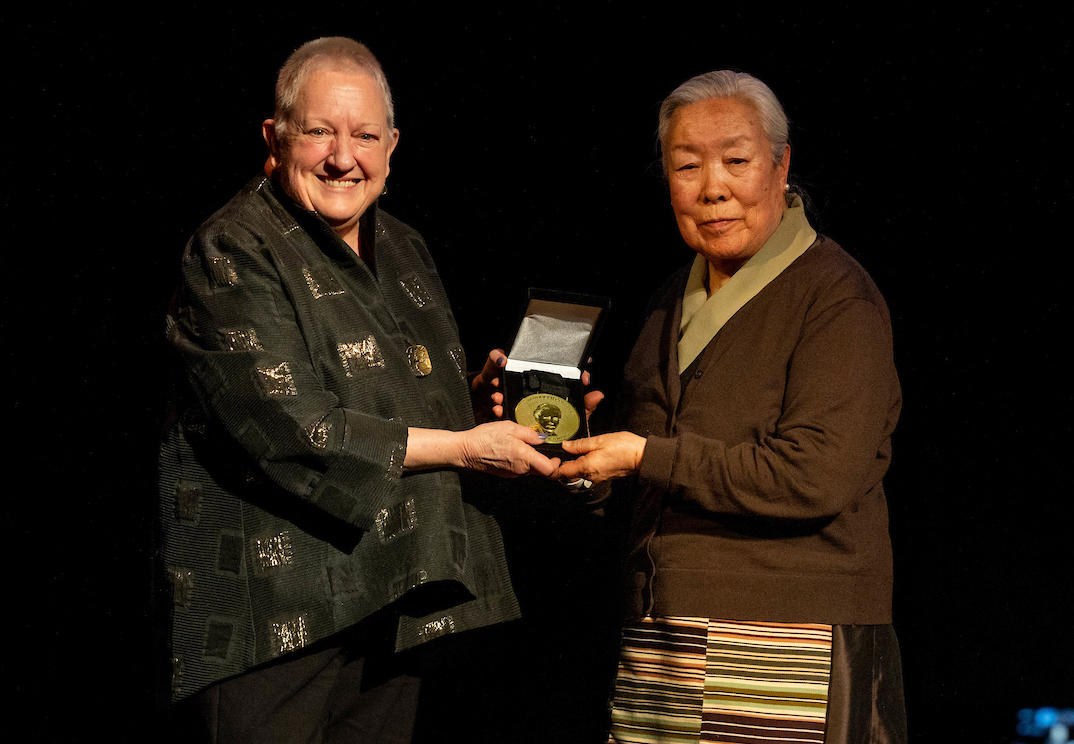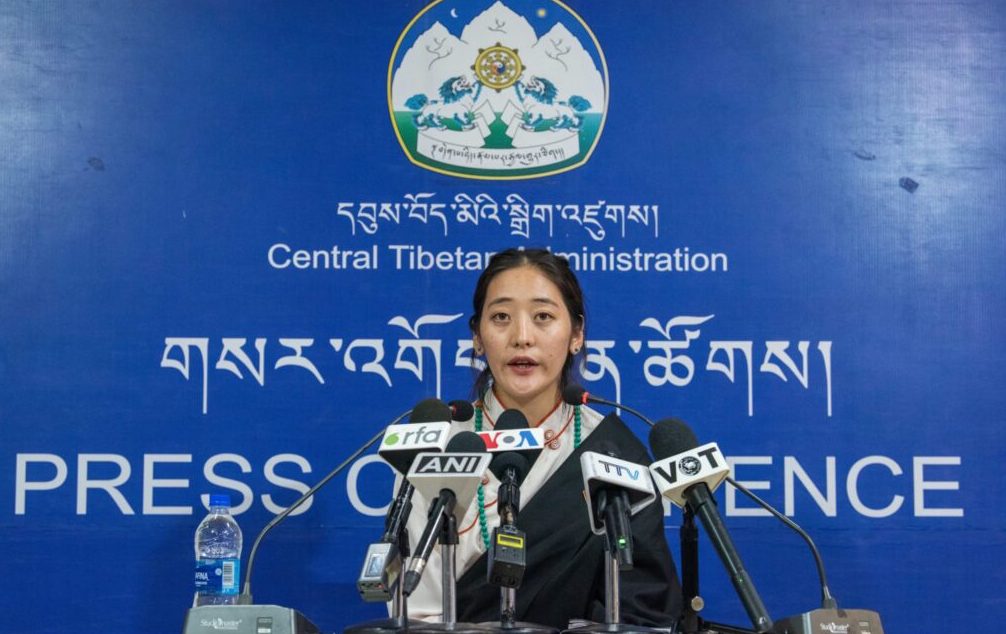By Choekyi Lhamo
DHARAMSHALA, Jan. 1: The Chinese embassy in New Delhi has sent an official letter of ‘concern’ to the Indian parliamentarians for their public association with representatives of the 17th Tibetan Parliament-in-Exile on Dec. 22. This “unusually worded letter”, as opined by media outlets, has garnered strong reaction from the Indian politicians on Friday. The reception held by representatives of TPiE hosted at least six members of the Indian parliament cutting across party lines to advocate for the Tibetan movement.
The Political Counsellor Zhou Yongsheng of the embassy wrote addressing the Indian leaders, “You are a senior politician who knows the China-India relations well. It is hoped that you could understand the sensitivity of the issue and refrain from providing support to the ‘Tibetan independence’ forces, and make contributions to China-India bilateral relations.” By citing India’s One China policy, Zhou added that the CCP firmly opposes any anti-China separatist activities and urged the Indian government to refrain from interacting with members from “so-called Tibetan government-in-exile”.
CTA spokesperson from DIIR, Tenzin Lekshay responded to the content of the letter sent by the Chinese embassy, “[In the letter] they said that the Central Tibetan Administration is an illegal entity, which is not true. We’ve had our round of several negotiations with Chinese leaders. And we are not a separatist group either; our policy is the Middle Way Approach, which is not about separation, but about fulfilling the aspirations of the people within the framework of the Chinese constitution. This is something we need to be very clear about.”
The new convener of the APIPFT, Sujeet Kumar told the reporters after the development, “I personally treat the letter with the contempt it deserves. It is not the first time the embassy has written to me, it has written to me several times. The embassy does not have any locus standi to write to an Indian parliamentarian. If it had any issue, it could have written to the Ministry of External Affairs. It has violated the protocol.”
However, the Biju Janata Dal party member Kumar also said that it was not a political engagement with the Tibetan MPs, but rather aimed at promoting cultural and trade ties. “We have not met the Tibetan government-in-exile on behalf of the Ministry of External Affairs or the Indian government. . . Our meeting was aimed at promoting cultural and trade ties between India and Tibet,” he further clarified.
Another forum member, MP Manish Tewari said that he hadn’t received any letter, “Neither have I received any letter nor will I demean or diminish myself by responding to such imbecile missives. Had [Chinese Foreign Minister] Wang Yi written, perhaps I would have considered responding.” The All-Party Indian Parliamentary forum for Tibet, formerly established in 1970, was revived through lobbying with several Indian politicians last week.











One Response
The Chinese embassy’s political counsellor writing to Indian politicians is interference in the internal affairs of India. BJD’s Kumar said, “who is the political counsellor at the Chinese Embassy to write a Member of Parliament of India, the largest democracy? How dare you sent letters to Indian MPs?” He also said, “personally, I do not consider Tibet to be part of China”. Exactly! At least one brave Indian had the guts to speak the truth. Tibet has never been part of China nor it will be. The only reason why India and the rest of world have accepted the spurious Chinese claims is the constant Chinese lies, fabrications and concoctions that fooled the world. Their claim over Tibet is as dubious as their claim over the South China Sea. Tibetans have never accepted Chinese overlordship and have always retained our independence. Independent Tibet has signed treaties with British India known as the Simla convention of 1913-14. Tibet also signed treaty with Nepal after the Tibet-Gurkha war on 24th March 1856 between two sovereign nations. Nepal used this treaty as its sovereign status to obtain admission in the United Nations. Tibet also signed Treaty of friendship and alliance between the Government of Mongolia and Tibet on 11th of January 1913. This treaty’s text in Mongolian was published by the Mongolian Academy of Sciences in 1982 and in 2007 an original copy in Tibetan language and script surfaced from Mongolian archives.
The Simla convention of 1913-14 between Tibet and British India agreed to demarcate the Eastern border between Tibet and India. It was agreed that line which delineate the two nations would be known as McMohan Line after the British Administrator Henry McMohan. The Tawang region which India named Arunachal Pradesh on 20th February 1987 was ceded to British India in return for the recognition by the British Government to acknowledge that all Tibetan inhabited areas west of the Yangtze River (Drichu) are bonafide part of Tibet which is indivisible from Tibet under the jurisdiction of the Tibetan Government in Lhasa. The Tibetan Government wanted a border settlement with China from the time of the great thirteenth Dalai Lama Thubtan Gyatso but the Republican Chinese under Chang Kaishek was equally imperialist and wrote two letters to the thirteenth Dalai Lama to join China instead but the Dalai Lama rejected such ludicrous propositions. The Chinese therefore used the 9th Panchen as a Trojan and sent twenty officials and five hundred soldiers under the guise of “body guards” in their attempt to “assert” their claim of “sovereignty” over Tibet. They divided Tibet into inner and outer Tibet which was not acceptable to the Tibetan Government. That is why Tibet felt compelled to seek British recognition of historical Tibet comprising, Kham, Amdo and U-Tsang as one Tibet! The Chinese envoy didn’t agree to this and thus the Simla convention was not ratified by the Chinese Government and not because of Chinese objection to the ceding of Tawang to British India. The Chinese had no say whatsoever in Tibet’s decision to cede Tawang to British India because the Chinese had no jurisdiction over Tibet.
The Chinese communist Government itself acknowledged Tibet as seperate from China and forced Tibet to send a delegation to China for talks! If China had jurisdiction over Tibet, where was the need to sign the “17 point Treaty” with Tibet? Surely, China doesn’t need to sign an agreement to go to Shanghai! China had no rights in Tibet and that is why, they forced the Tibetans through a third party to go to Beijing for talks. China used Pandit Jawaharlal Nehru as a conduit to press Tibet to send a delegation. Hong Kong was proposed as the venue for Sino-Tibet talks but the British Government was not happy and did not allow the talks to be held Hong Kong. The Brit’s and the Americans were allergic to the spread of communism and didn’t want Tibet to enter into talks with communist China. The PRC was yet to gain recognition by most Governments and was much like the present day Taliban in Afghanistan. It was shunned by most countries in Asia, Europe and the America for its brutality and its ideology of glorifying mass murder. Finally, Tibet was forced to send a delegation to hold talks in Beijing where the Tibetan delegation led by Ngapo Ngawang Jigme was threatened with violent military invasion if Tibet didn’t sign on the dotted line! The Chinese also falsified the Dalai Lama’s seal in their attempt to legitimise the unequal treaty imposed on Tibet.
India must realise that THERE WILL BE NO PEACE ON ITS NORTHERN BORDER AS LONG AS TIBET REMAINS UNDER CHINESE MILITARY OCCUPATION. Besides, being an eternal imperialist, China will incrementally infringe over Indian territory just as they did to Tibet and finally gobbled whole of Tibet in a span of two hundred years. The only way to defend India is reinstitute Tibet as the historical buffer state. This will bring long lasting peace and tranquility between Tibet and India as is known through our history until 1951, when Tibet was invaded and occupied.
The times have changed for the better for the Tibetans thanks to Chinese aggression in Eastern Ladakh. In the bad old days, it was the Chinese who were inviting Indian politicians for their sumptuous dinners. However, today, it is the Tibetans who are inviting the Indian politicians.
Indian leaders must realise that imperialist China has ambition of one day conquering India! They are insidious and are always hungry for land, sea, space and resources. Now is the time to stand up and be counted or it will be another invader from the north that will occupy India one day. Never ever take your freedom for granted. A FREE TIBET IS THE BEST GUARANTEE FOR INDIA’S SECURITY! It’s a historical fact!